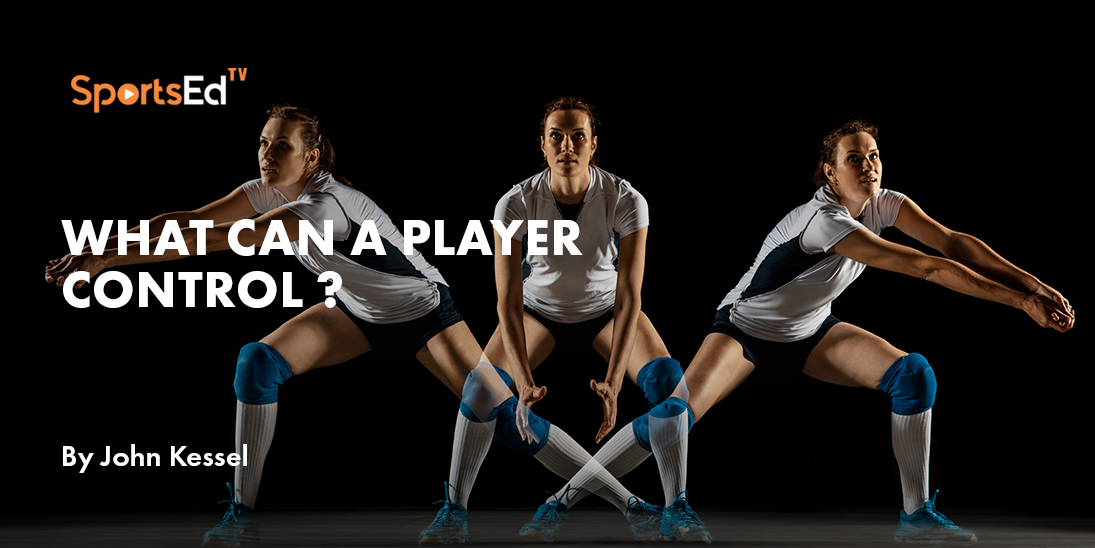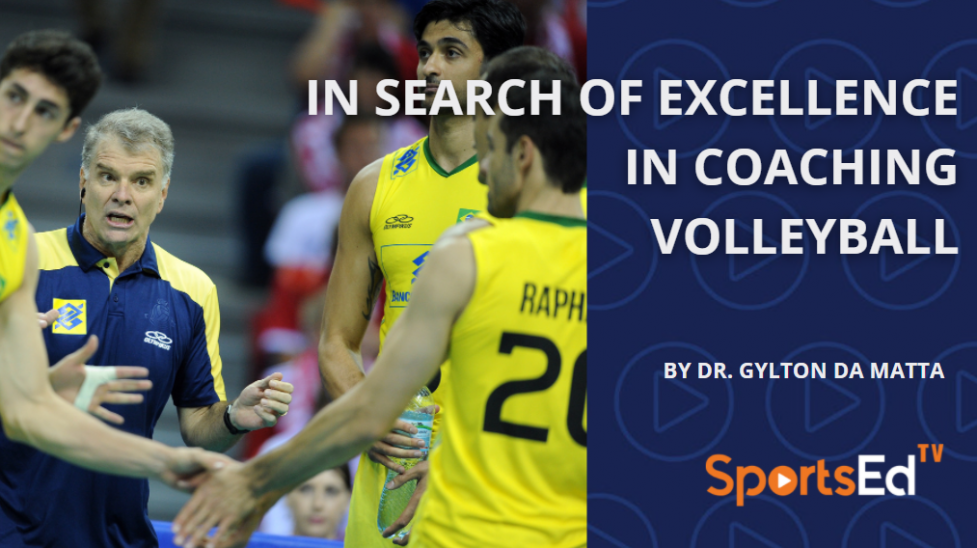Volleyball
Welcome and thanks for visiting...

What Can A Volleyball Player Control?

For all those players in our global volleyball family seeking to grow and become the best player, they can possibly be, here is my checklist of things to focus on, as they are things you CAN control, rather than wasting time, energy, or focus on things that are out of your control – like the outcome or the conduct of your opponents, the officials, fans and countless other things.
YOU CAN CONTROL YOUR EFFORT
By choosing the team sport of volleyball, you have chosen to give up being able to control the outcome. You can, however completely control your effort, in practice and the match – As I tell every team I coach…I don’t care if we win or lose, but nobody is going to outhustle us.
VOLLEYBALL SERVE
How to improve your volleyball serve?
There are six basic skills in our sport of a lifetime, but only one that is in your control. The serve. Serve it in, and over the net. You can control the toss to yourself– make it consistent – and then put it over and in, time after time after time. See this jump floater video and many more to build your serving skills.
COMMUNICATION – Both self-talk and the way you talk to your teammates count. Speak only in the positive, never the negative. Eliminate words like don’t, can’t, won’t, try, but, and others that weaken you and your team, and be relentlessly positive, even throw in some humor when it’s a good time.
MOTIVATION – Keep watching the best. I am jealous, in a good way, of SportsEdTV, as when I was learning, you could not record things – you had to watch it live and take pictures. (I know you can’t take pictures when you play, but take lots of pictures, as your grandparents taught you). Study the best, and become yourself.
CONDITIONING & DIET – It is homework, as Anson Dorrance wisely puts it, and yet it is in your control all the time. As part of the effort, you should run during practice, not walk. When you have a choice of stairs or elevator, choose the stairs, and run them if your book load allows. Play doubles in the sand as often as you can. Eat healthily, and choose good things to eat, but we know that ice cream is worth rewarding yourself for – just remember to always distinguish treats from habits in what you regularly eat.
LEARNING – You may know from clinics how we learn motor skills fastest. You know, that means the chaos of randomness and even playing half your time below your average on the journey of raising that average. The puppy dog syndrome* is not going to fool you, so celebrate even below-average performance with the reality of getting better – you may fail but you are NEVER a failure, it is just part of the process of learning. Work hard when your coach is watching you, and work harder when he is not. Be creative, and “try stuff,” and know that when you do new things you have never done before, you will err. Just work hard to make sure they are positive errors on the path to error-free play rather than negative ones.
ATTITUDE – attitude, attitude. Sometimes, there may be nothing more important and nothing much more to say other than to allow players to experience the wisdom of others on the topic.
Remember, you win, regardless of the score, with PEOPLE, not a volleyball, and those who keep a positive, problem-solving love of the game win, regardless of the scoreboard.
LEADERSHIP – It is belief in our teammates, which we all can do and control. Be the first to acknowledge your teammates after a kill, both setter and the passer, for you know it takes a TEAM to reach the point of being able to score the most points. Keep building, teaching, and supporting every teammate with compassion and passion, and be a leader both on and off the court – Here is a video done by some kids your age that speaks to leadership.
GOALS - Make personal and team goals. One win or loss does not change the control of your goals, if you set them realistically, and do things every day to reach them. Set them and work on them to control the goals you seek to reach. Set them for practice, matches, and in daily life - just remember that most goals are steps to final, larger goals.
DELIBERATE PRACTICE – Remember the lessons learning your handwriting, something you practiced daily. It is not enough to practice; you MUST practice focusing on those precious two hours with your teammates and asking yourself if that was a good or bad error and how you should do it better the next time. You can control your dedication and commitment to practicing with full focus. We call this mindful practice or deliberate practice. For in practice, and in every game you play, the ONLY point you have a chance to "control" is the next one. Not the last one. It's done. Not two points from now that is the future. This NEXT point has a right here, right now focus. It is this kind of mindful, one-point-at-a-time focus that helps you succeed.








